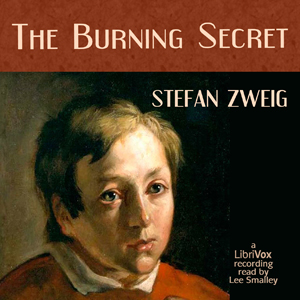

Zweig was [...] one of the most fervent advocates of the idea of European unity. He did not want the “history of tomorrow”, the history taught to younger generations, to be devoted solely to the glorification of warrior heroes, he wanted it first and foremost to be the history of the heroes who advanced the European idea and its aspiration for unity.

The vanquished Heroes of Europe — Stefan Zweig’s Poetics of Defeat in The World of Yesterday; Stephan Resch; Oxford German Studies; 2022; Volume 51; Issue 2; pp. 148-160
Through their shared values of humanism, supranationalism and pacifism, the individuals remembered by Zweig form a heroic collective in their seemingly impossible fight against nationalism and fascism.
‘Reclusion is no more possible while our world stands in flames’: Emerging political subtexts in the genesis of Stefan Zweig's Ungeduld des Herzens; Stephan Resch; German Life and Letters; October 2022; Volume 75; Issue 4; pp. 489-503
Ungeduld des Herzens (1939) is the only novel published during Stefan Zweig's lifetime. Written between 1936 and 1938, the book's genesis coincided with key events in Austrian and European history, including the mass displacement of Jews from Germany and the ‘Anschluss’ of Austria with Nazi-Germany.
Stefan Zweig (1881-1942): A guide to reading and research; University at Buffalo
STEFAN ZWEIG DIGITAL, a project developed on the initiative of the Literature Archive Salzburg
Information and research portal dedicated to the life and work of the Austrian writer Stefan Zweig.
DW book expert David Levitz on Stefan Zweig's novel 'Beware of Pity'; video; Deutsche Welle; 2:13
A humanist in exile: Stefan Zweig, 75 years after his death; article; Nina Wuttke; Deutsche Welle; 22 February 2017
The World of Yesterday; Stefan Zweig; 1943, 342 pp.
The things I want to preserve are entitled to serve as memories for others reflecting my life before it sinks into darkness.
The Invisible Collection; Stefan Zweig; 1926, 40 pp.
Master Builders: A Typology of the Spirit; Stefan Zweig; 1930; 905 pp.
Émile Verhaeren; Stefan Zweig; 1914; 290 pp.
 The Burning Secret
by
The Burning Secret
by
Stefan Zweig, gardien de l’héritage européen; Marion Garot; Symposium Culture@Kultur; 2022; Volume 4; Issue 1; pp. 35-42
À travers les portraits choisis de personnages érigés en figures illustres, son travail de réécriture a un objectif bien précis : celui de mettre en scène une histoire internationale de l’Europe, par la filiation intellectuelle et culturelle de ses grands esprits, se faisant gardien de l’héritage européen
»Das moralische Gewissen Europas«: Stefan Zweig und Robert Menasse; Hinrich C. Seeba; ZIG Zeitschrift für Interkulturelle Germanistik; 2018; Volume 433; 9; pp. 119-136
Zweig hat [...] die Rolle des Schriftstellers definiert, die er auch sich selbst zugeschrieben und praktiziert hat, als er Ende der zwanziger Jahre, inzwischen der berühmte Autor, überall gefeiert durch die Welt reiste und für die Idee Europas warb.
Stefan Zweig: "Die Welt von gestern"; Audioaufnahme; gelesen von Michael Heltau; ORF; 16:47
Sendung zum 75. Todestag von Stefan Zweig.
Stefan Zweig, une vie d'écriture; podcast serie; Radio France:
STEFAN ZWEIG DIGITAL, internationales Projekt auf Initiative des Literaturarchivs Salzburg
Informations- und Forschungsportal zu Leben und Werk des österreichischen Schriftstellers Stefan Zweig.
Stefan Zweig: Leben & Werke; Stefan Zweig Zentrum Salzburg
Stefan Zweig: "Ungeduld des Herzens"; Buchbesprechung; Deutsche Welle; 6. Oktober 2018
Stefan Zweig: Zwischen Ruhm und Heimatlosigkeit; Artikel; Nina Wuttke; Deutsche Welle; 23. Februar 2017
Zweig, der Kaiser & das Ende der Geschichte; Artikel; ORF; 28. November 2018
A morte de Stefan Zweig, para quem Brasil era país do futuro; Edison Veiga; Deutsche Welle; 23 de fevereiro de 2022
Rebulding a devided continent - Permanent Exhibition
The period after 1945: Europe is in ruins, disempowered and divided between two opposing global forces, the United States of America and the Soviet Union. United by fear of Communism, some Western European countries began the path of co-operation at a supranational level in order to tame nationalism and dismantle the risk of war. In Eastern Europe however, liberation for many meant the replacement of Nazi tyranny by Communist dictatorship under Soviet control.
Stefan Zweig; Literature Archive Salzburg; University of Salzburg
The Literature Archive Salzburg preserves the largest European collection of materials from the estate of Stefan Zweig, which includes diverse documents from different work and life contexts.
Chess; Stefan Zweig; 2017
Messages from a Lost World: Europe on the brink; Stefan Zweig; 2017
Encounters and Destinies: a farewell to Europe; Stefan Zweig; 2020
Weimar in Exile: the antifascist emigration in Europe and America; Jean-Michel Palmier; 2017
Books can be consulted upon request sent to Library@europarl.europa.eu at:
Info Hub Brussels
Esplanade Solidarność 1980
B-1050 Brussels, Belgium
Monday-Friday 9:00-18:00
EP Library catalogue will give you access to a large multilingual collection of information sources, focusing on European policies, law, economics and international relations. Find search results (open access) related to the subject of this guide.
By installing the Citizens' App, you’ll learn who does what in the EU, how all of this is relevant to your daily life and what challenges the EU faces, many of which will shape your future.
You can contact the European Parliament through its Citizens' Enquiries Unit (Ask EP), which will provide an answer to your questions about the Parliament, its positions and activities, organisation and rules, powers and procedures.
*Except for some photos